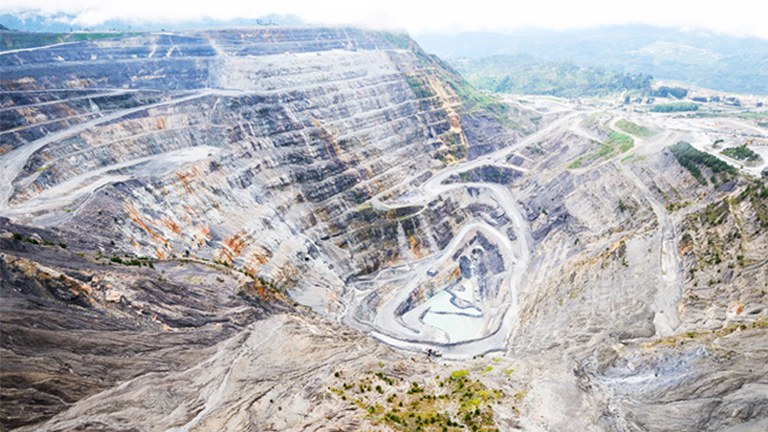Papua New Guinea police chief authorizes lethal force to quell highlands violence
2023.08.15
Port Moresby
 Papua New Guinea police commissioner David Manning speaks to the media in Port Moresby, Feb. 26, 2023.
Papua New Guinea police commissioner David Manning speaks to the media in Port Moresby, Feb. 26, 2023.
Papua New Guinea’s police chief has told officers to use “lethal force” to quell violence in Enga province, where one of the world’s largest gold producers and its Chinese partner plan to reopen a mine with a long record of human rights abuses.
The directive in an Aug. 12 memo from Commissioner of Police David Manning, which has been seen by BenarNews, is in response to reports of escalating violence in Enga, a remote highlands region prone to tribal conflicts, but also applies across the Pacific island country, it said.
“There has been an increasing number of reports of the Enga population being armed with firearms and offensive weapons, resulting in the escalation of violent criminal activities,” the document said.
“The directive also applies to similar incidents and operations throughout the country, with the aim of ensuring that those who possess firearms no longer pose a threat to law abiding citizens and vulnerable communities.”
Canada’s Barrick Gold Corp., which part owns the Porgera gold mine in Enga province along with China’s Zijin Mining Group, earlier this month said it hopes to resume operations at the mine before the end of 2023 after a hiatus of several years.
Mining Minister Ano Pala said at a forum in July on reopening the mine that maintenance of law and order is critical to its operations, according to Barrick’s statement.
Papua New Guinea has one police officer for about every 1,800 people, nearly four times less than the level recommended by the United Nations to ensure law and order, according to a Griffith Asia Institute report published this year by researcher Sean Jacobs.
The research estimated the ratio of police to people has declined substantially in the past half century as Papua New Guinea’s population tripled to more than nine million.
Stability for the country, which gained its independence from Australia in 1975, has remained elusive as it grapples with tribal violence and challenges such as corruption and lack of roads and basic healthcare in many regions.

Manning, in a statement on Tuesday, said his shoot-to-kill directive has the support of the government and police officers have been given clear direction on when its use is appropriate.
“In simple terms, if a person is brandishing a gun, an explosive device, or other weapon such [as] a bush knife or catapult, force will be escalated to protect the public and the police,” he said.
“Domestic terrorists and other criminals have now been given more than fair warning and they can expect no tolerance,” Manning said.
Papua New Guinea’s police union earlier this month said the force suffers low morale, poor equipment and run down uninhabitable barracks and needs an urgent injection of funds.
“Let us give priority to the welfare of our police personnel and then equip them adequately with appropriate gear, arms, appropriate allowances, transport, accommodation and then deploy them to the regions of crisis,” said Lowa Tambua, president of the Police Association.
Opened in 1990, the Porgera mine, about 600 kilometers (373 miles) northwest of the capital Port Moresby, has been a source of conflict for years.
Barrick and Zijin Mining agreed in 2021 to halve their combined stake in the mine to just under 50% following the Papua New Guinea government’s refusal to renew Porgera’s license.
Local interests such as the provincial government and traditional landowners are now the majority owners.
In 2011, a Human Rights Watch report exposed gang rapes and other violent abuses by security guards at the mine.
Under pressure later that decade, Barrick in 2017 commissioned a nonprofit organization to make recommendations for addressing more than 900 human rights abuse cases linked to Porgera.







